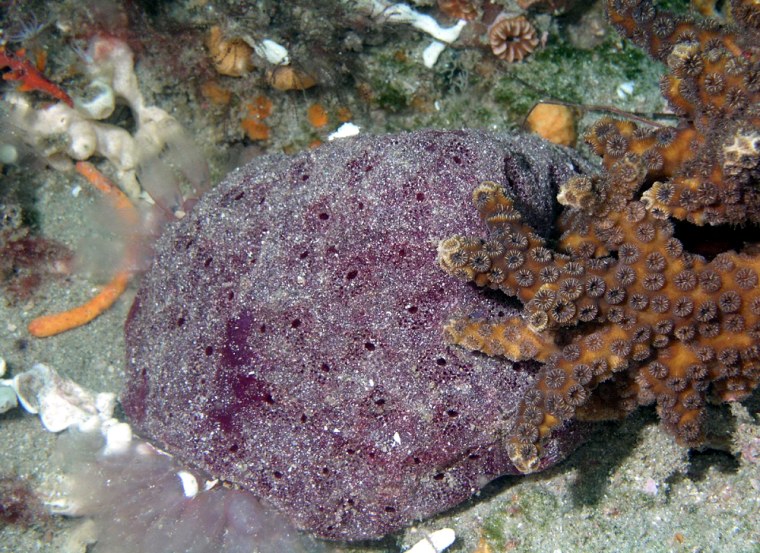Researchers working off coastal Georgia have discovered what could be three new species of bottom-dwelling creatures known as sea squirts.
The diminutive creatures — also known as tunicates — were recently found at Gray's Reef National Marine Sanctuary, a reef 17.5 miles east of Georgia's Sapelo Island.
Two of the sea squirts — one orange-colored with vein-like designs running through it and another spherical with evenly-spaced holes — are about four inches in size. The third is about the size of a grape.
Marine biologist Danny Gleason of Georgia Southern University made the discovery, along with four of his students, but has turned to a tunicate expert to help determine whether the animals are truly new to science.
If that proves to be the case, Sanamyan will publish descriptions of the new animals and have the honor of bestowing their names on the creatures.
Gleason and the students came across the sea creatures over the summer while working under a special permit needed to collect invertebrates in the sanctuary.
"It's amazing how little we know of the Earth," he said. "I think that's the great thing about science — you discover new things all the time."
Tunicates are members of a broad class of living creatures called chordates that, at some time during their lifecycles, share physical features, including neural cords that run the length of their bodies.
Gleason and other Georgia Southern scientists have been collecting and photographing invertebrates at Gray's Reef for an online field guide. So far, 350 specimens have been documented.
